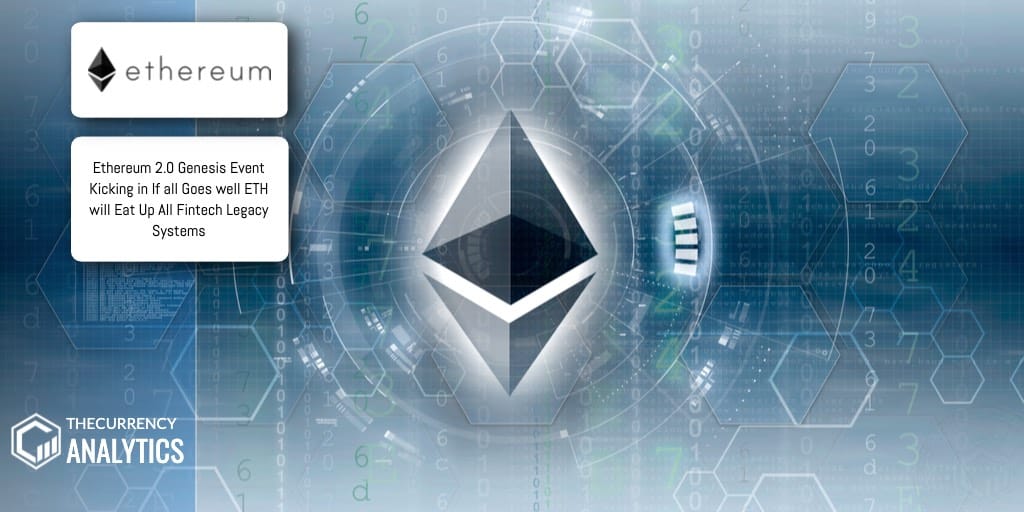
The launch of Ethereum 2.0 brings us to the Next Gen Ethereum Network. The work to get this happen has been happening for several years. Some of them were skeptical about seeing it coming.
The Ethereum Foundation Blog Post expressed that Ethereum 2.0 will be live from December 01, 2020. This upgrade will lead to the transition of the Ethereum Network from Proof-of-Work to Proof-of-Stakes.
If Ethereum should take effect, about 16,384 validators need to stake a minimum of 32 Ether each. When this target is achieved, the Beacon-Chain infrastructure will help kick in the Ethereum 2.0 Genesis Event.
Joe Lubin, Ethereum co-founder and CEO at ConsenSys stated, “We’ve hardened Ethereum 2.0 as much as we can with simulated test environments, formal verifications and audits. We are incredibly excited to see the community galvanize around the first phase of Eth2, now with real value at stake.”
Further this will be the launch of the first phase and the rest will be rolled out in Phases. The energy-efficient means of maintaining the network is expected to start with the Beacon Chain.
The economics for “PoW is where one unit of computational power = one unit of mining power” Vs. “PoS is where one unit of value = one unit of mining power for validator.”
Both systems incentivize for network maintenance and ensures that data is not tampered with.
Sharding is yet another improvement that will happen in the process. This will not occur immediately, but will happen at a later point in time. The network through output is expected to increase dramatically as only a part of the node need to validate a particular transaction.
If all of these changes would make scalability possible, ETH is going to compete and eat up all Fintech legacy systems.
Regarding, the eating up and dominance in Fintech by Ethereum, Sydney Ifergan, the crypto expert tweeted: “Ethereum 2.0 is going to be a game changer in Fintech soon. However, when the ETH network results are confirmed, replication or copying of the technology will happen. More competition will jump in.”
Vitalik Buterin, Ethereum founder sent around 100 transactions each from his “VB2” address with 32 Ether each contributing to his first ether for staking towards the next iteration of the blockchain network. The amount is a total of 3200 units in cryptocurrency amounting to approximately $1.4 million by volatility.
Staking is the process by which users commit their funds for a particular period of time in return for rewards. Beacon chain, the core of Ethereum 2.0, will go live the sooner the target staking amount (16,384 validators and 524,288 ether equivalent) is achieved.
Public Ethereum users who are willing to stake have been since then able to deposit the minimum 32 ether needed to stake on Eth 2.0.
Get the latest Crypto & Blockchain News in your inbox.